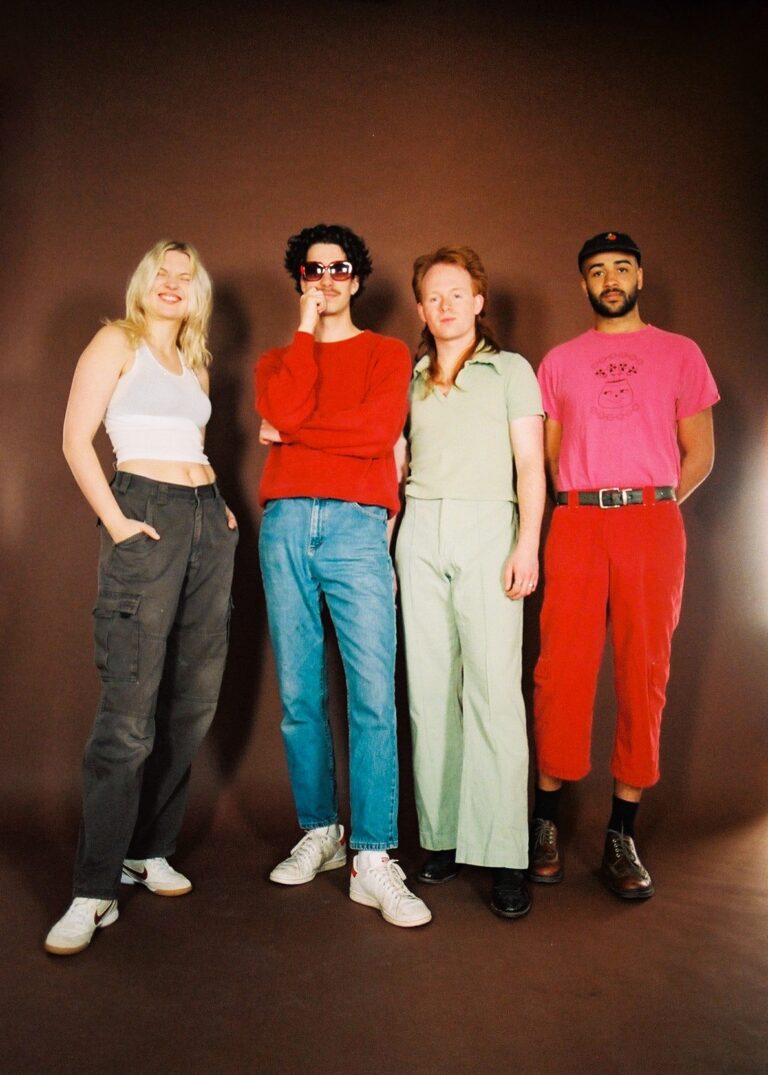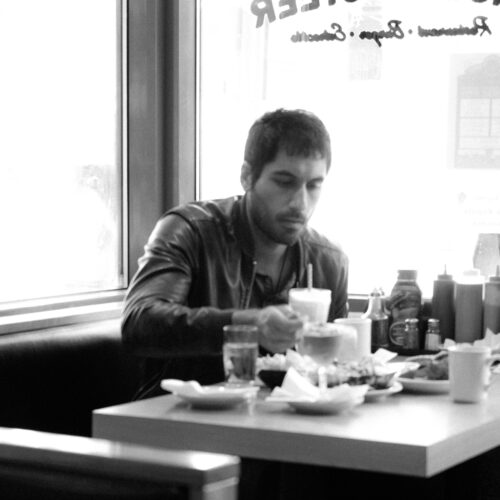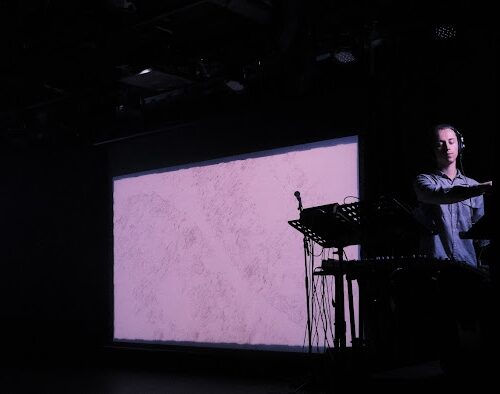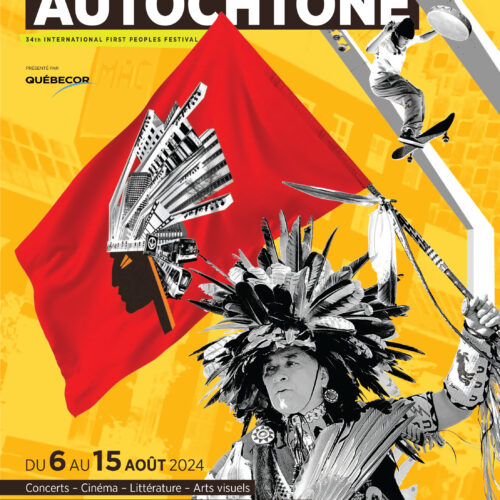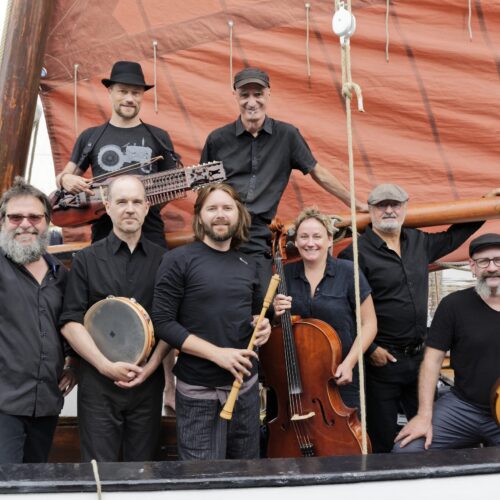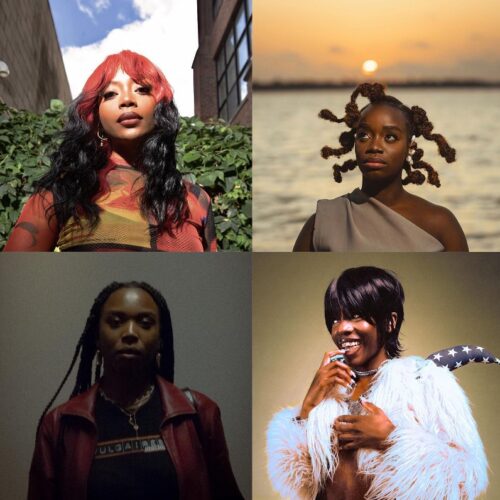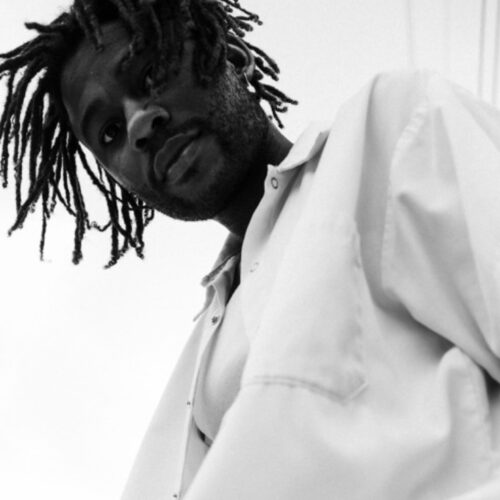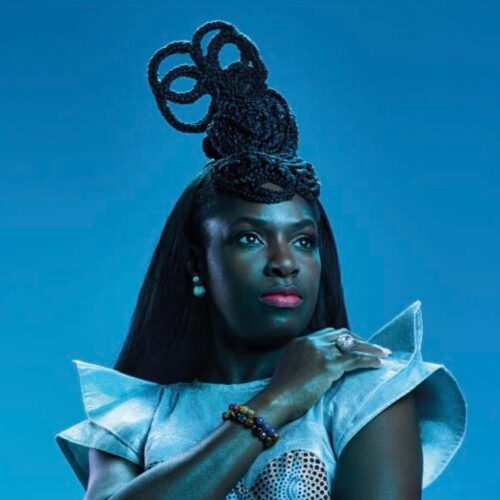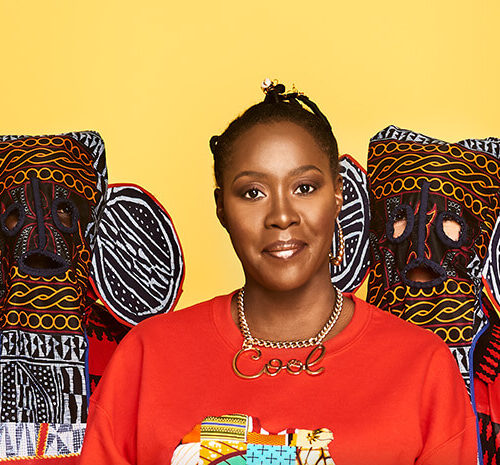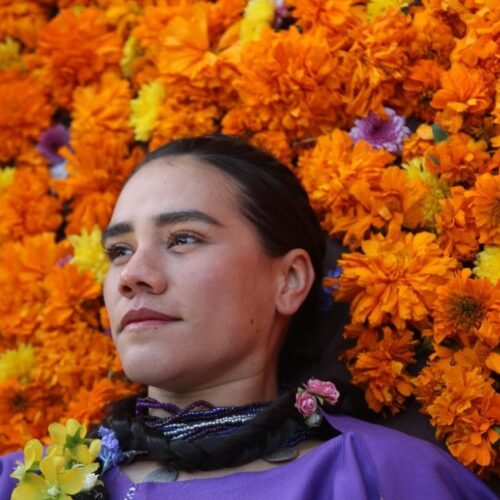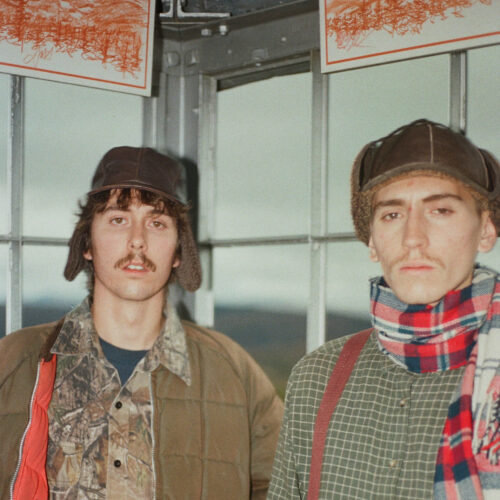Additional Information
Vancouver-born indie darlings Winona Forever released their third album, Acrobat just earlier this year, but they haven’t shown any signs of slowing down. Coming off the back of an extensive US and Canada tour, plus their first foray into Europe supporting Ginger Root, the four-piece is headed to Quebec to play the M for Montreal festival. PAN M 360 caught up with Ben Robertson (guitar, keys, vocals), Rowan Webster-Shaw (guitar, vocals), and Alex Bingham (drums) prior to the show to learn more about their unannounced new album, their process, and the journey from a DIY Vancouver group to an international tour-worthy band.
PAN M 360: You’ve just wrapped up your first European tour and a big American tour, right? What was that experience like?
Rowan Webster-Shaw: It was really fun.
Ben Robertson: Yeah, Europe was really fun. Ginger Root had a really good crowd. A lot of people spoke English, which I guess I could have been assuming, but it was pretty okay to navigate. We were driving on the other side of the road for a bit there. And like, the wheel’s on the other side, but it was really cool.
PAN M 360: How did it feel to be touring alongside Ginger Root after semi-knowing each other virtually for so long?
BR: Yeah, we were supposed to play together before COVID, as with many things that we were supposed to do before COVID. I’ve been a really big fan of them for a while, and I was kind of waiting for their moment to really pop off which happened with “Loretta” (2021). And thankfully, we’re on the same label. They’re cool people. And it came about that we were kind of hoping to get to Europe, and they were able to get some dates locked in. So it feels really lucky.
PAN M 360: Were there any dates in Europe that felt especially memorable?
Alex Bingham: In particular, the first place we played was Utrecht which was outside Amsterdam, and it was a pretty cool place.
RWS: I think we’re all in agreement that the Netherlands was our favourite place.
BR: Yeah, we like the Dutch sensibility, you know? About their dam approach, that’s pretty cool. Their biking, all their canals.
AB: I bike a lot, so I appreciated the crazy amount of biking.
RWS: They have like one and a half bikes per person.
PAN M 360: Have you mostly been playing songs off of Acrobat and Feelgood, or are you working on any songs we haven’t heard yet?
AB: Yeah, we’ve been playing a few new songs that we recorded this past year. And then some older stuff.
BR: It’s almost like a couple of songs per record. Like we still play stuff from our first record. Only a couple, but it helps to keep some of that energy. Which is interesting, because it’s like old vibes. But also, for people who haven’t seen us before, they get to see a bunch of stuff we’ve done. Right? The eras.
PAN M 360: You guys obviously started out in the Vancouver scene, then had a stint in Montreal—what do you find are the biggest differences between being a band in each city?
RWS: I mean, I feel Vancouver is just smaller. With us being from here, like, we have a little bit more of a community around playing music here. And a lot of our friends who play in bands and stuff are still here. So that was definitely part of why I wanted to come back to Vancouver. And also just kind of being ready for a change again, because we’d been in Montreal for a few years, which was the reason we basically went there in the first place.
BR: Yeah, we were ready for a change having played the same places a lot here in Vancouver.
AB: And then all those places are closed now.
BR: Yeah, little did we know that would be a long break. But I think in Montreal, we were starting to get our footing, and then COVID hit, so then we made a record instead. And then one thing I’d say is that we’ve been lucky with some of the grants in BC. I think in in Quebec, they’re obviously a little more geared towards Francophone artists, which makes sense. But we weren’t really taking advantage of that. We’ve kind of been able to be an export artist from BC, like through Music BC and Creative BC to get some funding. And that’s been really helpful, because there are certain things we didn’t really think we could do, and then there’s actually money for it. And so that’s kind of cool. I think it was healthy for us to try something else. And we did our first US tour from Montreal. We were trying to push ourselves in a few ways. And then now we tour the US from here, but I never would have thought we could. I don’t know. It’s just kind of a mentality thing to keep changing it up.
RWS: I feel like we’ve got to do a bunch of things that I definitely wanted to, but kind of never thought that we would be able to do. Like going to Europe, doing a month and a bit in the US. It’s been pretty crazy.
PAN M 360: Vancouver is known for its DIY scene when it comes to shows—janky house shows, illegal venues, and community-run spaces—do you have a favourite memory of a show in the early days of the band?
RWS: I remember them being really fun. Definitely a lot sloppier. (The three of them crack up.)
BR: I remember one time, we were gonna play a new song Rowan had written—it was “Shrek-Chic.” And I think the man drank about a whole bottle of wine. Our friend had recorded the show, and it was just unusable. But in the best way unusable. I think that it’s something we keep in mind. The energy from those shows was really fun. There’s a place called The Matador that was like a literal basement of a house. And the 60 people that could fit in there felt like a huge amount of energy. So I think that’s where we started. And we couldn’t really just keep doing that forever. But it’s also still, like, the kind of thing that we find fun. Our last show before the pandemic was a house show. It was really fun. I remember climbing all over Alex’s drum kit and just like, electrocuting myself on the mic.
AB: Yeah, getting to play shows like that is some of the most fun.
RWS: They’re both cool. I think it’s definitely something we try and translate when we play larger spaces and more legitimate things.
AB: It is hard, though. When the crowd isn’t like, falling over themselves at the show.
BR: It’s a little bit more of a mentality than a reality. Maybe you bring a certain energy on stage, even though the crowd isn’t so directly responding right in your face. But we played a couple of shows on this Europe run where the crowd was kind of right there, especially in Copenhagen, where we were in this little fishbowl of people. And if I said something on the mic, they could respond and it was pretty intimate in that way. So I don’t know—if someone is to like, jump in the crowd or be kind of weird, some people would really like that. They’re like, ‘Oh, I’ve never seen a band do that.’ And it’s like, ‘Oh, man. That’s all we do.’
PAN M 360: Talking now about Acrobat as a whole, was there anything about making that record that really surprised you? Any challenges that were new to you?
AB: Uh… Yes. (They all laugh.)
BR: Dude, it was so easy. (Laughs)
AB: For me, at least, it’s a lot easier to know what a song is supposed to sound like if we’ve played it live before. I personally get a sense of what the song is at that point. But all of this stuff was kind of just recorded in our basement, and no one had heard it. We had played the stuff together, but it was a lot of re-recording stuff and searching for what this song was. And it took a long time.
BR: Yeah, it probably shouldn’t have taken us that long to make nine songs.
RWS: But we kind of had unlimited time too, and the home studio.
BR: Rowan and I were also learning more about production. And then we had ideas and trying to get piano sounds was new. It was certainly a bit of a head-scratcher to try something new. And to Alex’s point, there isn’t necessarily a goal of like, ‘Oh, man, I gotta do this, and then it’ll translate on stage,’ or whatever. It was kind of just in the bubble of recording. So I think I think we didn’t make it that easy on ourselves. But we did persevere to get some tracks that I still think were a good use of time. And we play the ones that feel good to play live. And some of them, we haven’t really played live, but people like them online or what have you, and that’s cool too.
To contrast it, I don’t know if we’ve announced this, but we have another album. We’ve done like 17 songs since then that we all just cut live, just to really feel differently about that. And the results are really different. Kind of. I mean, not that different but it feels much more like we edited by playing together versus editing by being producer people. So yeah, I think I think it would have been pretty different. But yeah, I don’t know. We had a Rhodes and a Wurlitzer and a piano and different rented stuff on Acrobat and experimented, and I think we tried to keep it interesting.
PAN M 360: Listening through the album, you can tell a lot of editing and refining went into the process. Was there a lot of music that didn’t make the cut for it or ended up being better for your solo project?
AB: Yeah, there’s a lot of stuff that didn’t… That we didn’t finish.
BR: Yeah, there’s stuff we didn’t finish. There are a couple of things we were doing live that we dropped. I also had some extra songs that I just made into my own EP. The ones that kind of stuck through were, I think, kind of the best ones. But some of them were just getting tricky, so we stopped working on them. I think that was probably a product of the mentality. I know people who didn’t have much creativity at all during the pandemic, like, it’s not really a super inspiring time. Especially in Montreal, where it was kind of locked down around 7 or 8 PM. Not a super normal time.
PAN M 360: Speaking of that next thing, how far along in the process are you for the new album?
BR: It’s into mastering! We tried to just do it a lot quicker, tried to make more, and get more past the finish line. And that’s felt a little bit more like how we used to make records. We did our first album mostly live, and so there’s something intuitive there. I mean, we’re a band that has live chemistry, and we can record live. Although the first couple of tracks we did for that one, I was wondering, like, ‘Can we do this?’ We’d just been in editing mode for a little bit, which is cool. I like music that sounds like that. But I also like music that sounds really raw. So we got those first couple days of tracking done, and I thought it sounded great. So that felt really cool to know that we could do either.
AB: We’ve sort of always wanted to do something new every time we go to make whatever the project is at the time. So I think any approach is valid, and we’ll see.
RWS: A live thing is pretty nice because it’s just so fast.
BR: We’ve had a few different workflows, and they’ve needed to change over time. It used to be that Alex would handle all the recording and mixing because he went to audio school. And Rowan and I would be like, what, mic is that? Why are you doing that? And slowly, we kind of learned our own takes on things, and now the process is a little bit more democratic. But also going to a studio is nice—someone else does that stuff and you get to just be like, ‘Alright, are we locked in together? Are we playing the way we want to?’
We recorded in New Westminster at a place called Little Red Sounds on Gabriola Island at Noise Floor. And both had good engineers and producers that worked there, so we got to just kind of go and be the band.
RWS: And that was something we hadn’t done before.
AB: We did a decent amount of pre-production on some of it. And then other stuff was more in the studio. And that was kind of fun to just be able to focus on like, what you’re playing and what sound you’re putting into it instead of, having to think about like, ‘Oh, how am I going to mic this drum?’
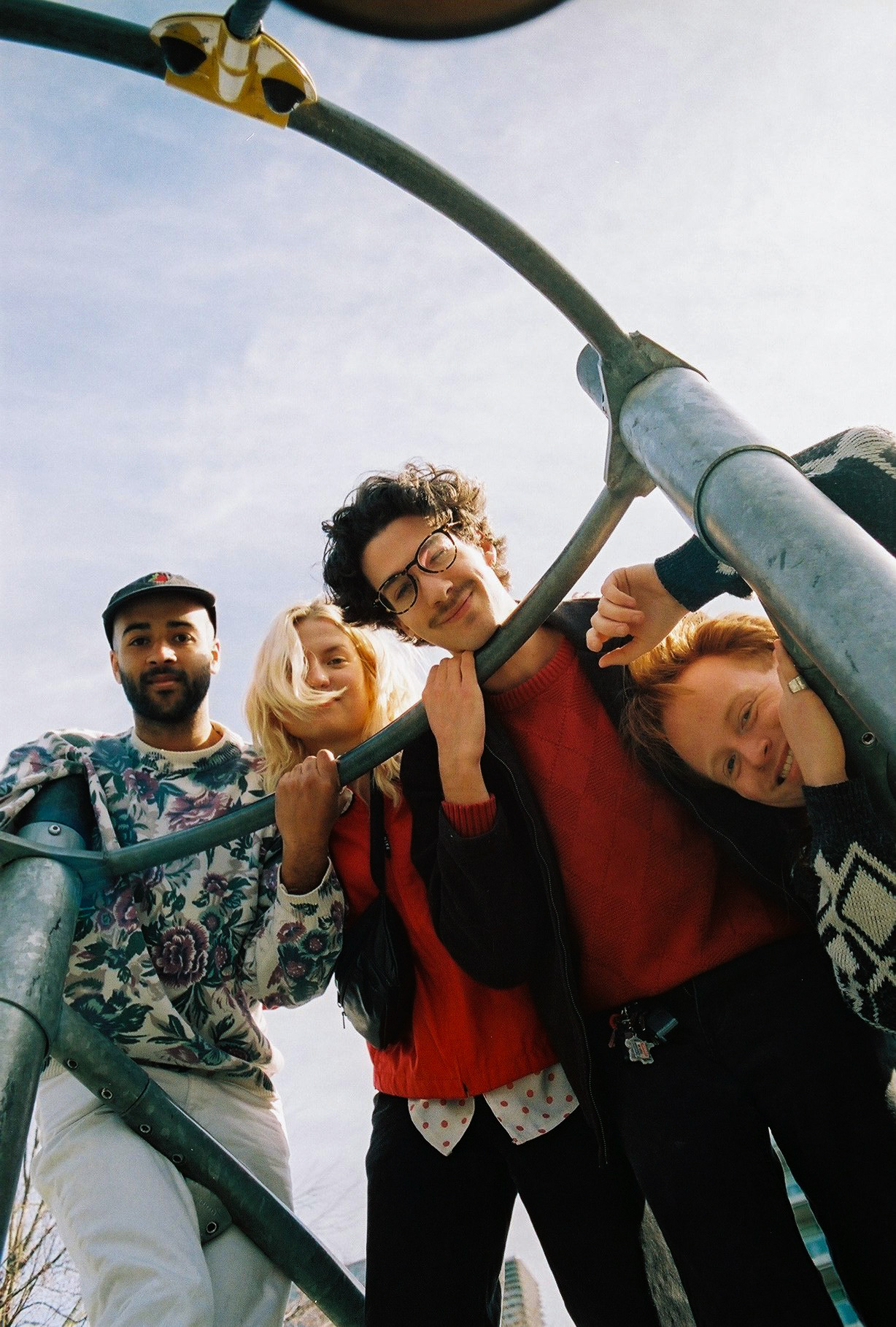
PAN M 360: Did you find that any of the music shifted as you went through that process, or did it feel pretty locked in?
RWS: Some of it was fairly locked in. But some of it, especially towards the end of the process, was more like, we had ideas but they only really came together as we played.
BR: What I noticed was like, let’s say you’re overdubbing just bass on something or just guitar. You do your three-minute take, and then you hear back one thing. And if you’re tracking the whole band, and you’re all just fine-tuning on the song—like, okay, let’s lean back here, let’s really push this harder—and then you hear the whole song back through the speakers, and you’ve been in control of the whole song. That kind of puts power in the band to be in control of the whole thing, instead of getting into a loop of changing parts or overdubbing something, and just doing things one at a time. It’s just a little bit different.
RWS: Definitely. Being able to listen to everything and not just focus on if what you played is perfect. Focusing on whether everything feels good together and being okay with letting some things go if it’s the right call.
BR: You bring the control into the room when you’re just like, ‘Alright, let’s all play.’
RWS: You know if everything is working, or if it’s not.
PAN M 360: What else can we expect from the new album?
BR: Well, there’s no piano. Well, it isn’t noticeable. It’s a bit of a return to some more guitar vibes and some higher-energy stuff. I think the feeling that it has cohesively is sort of live-off-the-floor. It’s a range of songs—including some songs that Rowan and Ruby (the bass player), and I wrote lyrically together. We would sit here with acoustic guitars and write together, and that’s something we haven’t done for a while. Or ever. Usually, maybe one of us would bring a song and then we collaborate with the rhythm and kind of go from there. But yeah, some group vocals, stuff like that. I think there’s new territory on it for us.
PAN M 360: When you’re working on something new, do you ever struggle with making it fit a certain ‘Winona Forever’ sound? Or do you feel pretty comfortable letting the band’s sound evolve as you do?
RWS: I think we generally just want to keep moving forward. So I don’t really feel any kind of drawbacks about bringing an idea to this group, and it can be different.
BR: I think it’s kind of a mentality. I find it tricky sometimes. But if you’re an artist, you might be like ‘Oh, here’s my next idea. And it’s really different.’ And then their best friends are like, ‘Alright, it still sounds like you.’ But you can’t see that. You’re doing the same kind of melodies and chords, and it’s got a different energy, but I’m still seeing the throughline. Playing the Acrobat stuff live, I think I had the kind of moment when I was playing the Wurlitzer live. And we now have a moment in the set where we’re kind of rocking out a bit, then do the Wurlitzer stuff, then a pretty slow song, then rock out a bit more. And that’s been fun. And I think it’s kind of funny to still play some of the stuff that we’ve played for years and years. But then once you’re playing it, it kind of brings that same feeling that the band’s had for quite a while now. And I think it’s pretty cool that we still have that.
WINONA FOREVER PLAYS L’ESCOGRIFFE, NOV. 17 10 PM W/ ALEX NICOL, & SORRY GIRLS
Photos by Raunie Mae Baker
